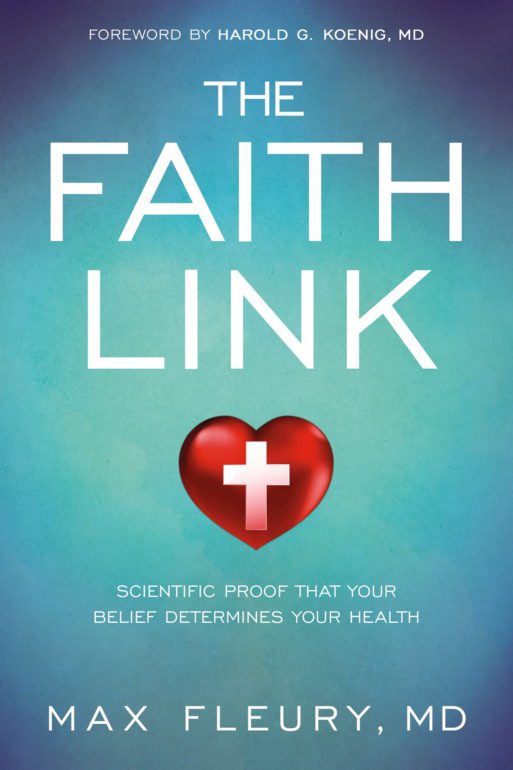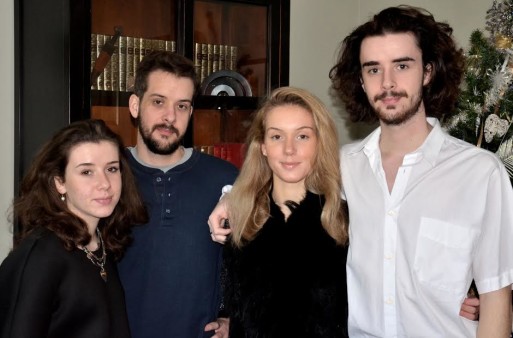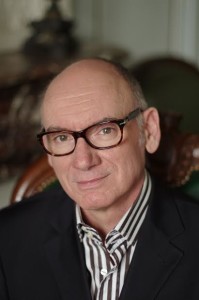 “The Faith Link: Scientific Proof That Your Belief Determines Your Health” (Charisma House, 2016) offers insights into the fascinating effects that one’s religious beliefs and spirituality can have on one’s health. The book’s author, the French Dr. Max Fleury, offers a valuable and well-rounded view on the matter as both a pastor and a practicing family medical doctor. Every reader, religious or not, can benefit from Dr. Fleury’s in-depth exploration of a bond that is only beginning to get the attention it deserves.
“The Faith Link: Scientific Proof That Your Belief Determines Your Health” (Charisma House, 2016) offers insights into the fascinating effects that one’s religious beliefs and spirituality can have on one’s health. The book’s author, the French Dr. Max Fleury, offers a valuable and well-rounded view on the matter as both a pastor and a practicing family medical doctor. Every reader, religious or not, can benefit from Dr. Fleury’s in-depth exploration of a bond that is only beginning to get the attention it deserves.
“The global fitness and health industry generates more than $75 billion in revenue annually,” explains Dr. Fleury, “You may be spending your income on diet fads, expensive medications, and fitness equipment without considering the direct connection between your health and your faith.” Indeed, when we consider the task of cultivating our spirituality — whether it be within the Christian faith, as it is for Dr. Fleury, or otherwise — we come across practices that create a stronger self.
We are forced to reflect: What are the relationships that matter to us? How is the way I treat my body (regarding everything from diet to mental health) impacting my quality of life?
We are forced to reflect: what are the relationships that matter to us?

Courtesy of Max Fleury
What makes “The Faith Link” different from so many other books about religion and health is the fact that its author has the privilege of understanding both sides of the coin: He is a man of faith and of science. “Is religion the opiate of the masses?” asks Dr. Fleury, “…And through encouraging a spiritual practice, does one propose the replacing of one addiction with another?”
Not necessarily.
The author highlights the dangers of religious and spiritual radicalism to one’s health, encouraging instead a tempered and healthy integration of one’s beliefs in everyday practices. As a doctor, he is able to consistently cite studies and personal anecdotes to convince his readers that these two elements can not only coexist but nurture one another.

Dr. Max Fleury
Religion, for example, can offer peace of mind and guidance in its texts when their lessons are considered in a contemporary context. Prayer, we realize, is essentially a form of meditation and opportunity for reflection. Religion can also provide a strong sense of community and create a great support system throughout a person’s life. “The adult brain does not remain in a fixed state,” states Dr. Fleury, “It is not a finite organ…Recent discoveries have shown that stem cells exist in certain zones of the brain and are capable of rapidly dividing themselves. They can also migrate and tailor themselves to create other cells…Learning stimulates this cellular specialization. In other words, our experiences shape our brain, for the better — or worse!”
In short, we come to realize that a healthy nurturing of spirituality or faith can be the best — and most natural — medicine available to us. “These are the elements,” says Dr. Fleury, “that contribute to a longer, fulfilled life.”
“The Faith Link” is a truly enriching and informative read. Buy it online or in a bookstore near you.

 “The Faith Link” by Max Fleury, MD
“The Faith Link” by Max Fleury, MD


 “Help Me, Helen”
“Help Me, Helen”
 Recovering Cremation Remains After the Los Angeles Fires
Recovering Cremation Remains After the Los Angeles Fires
 “As Tears Go By” by Marianne Faithfull
“As Tears Go By” by Marianne Faithfull














